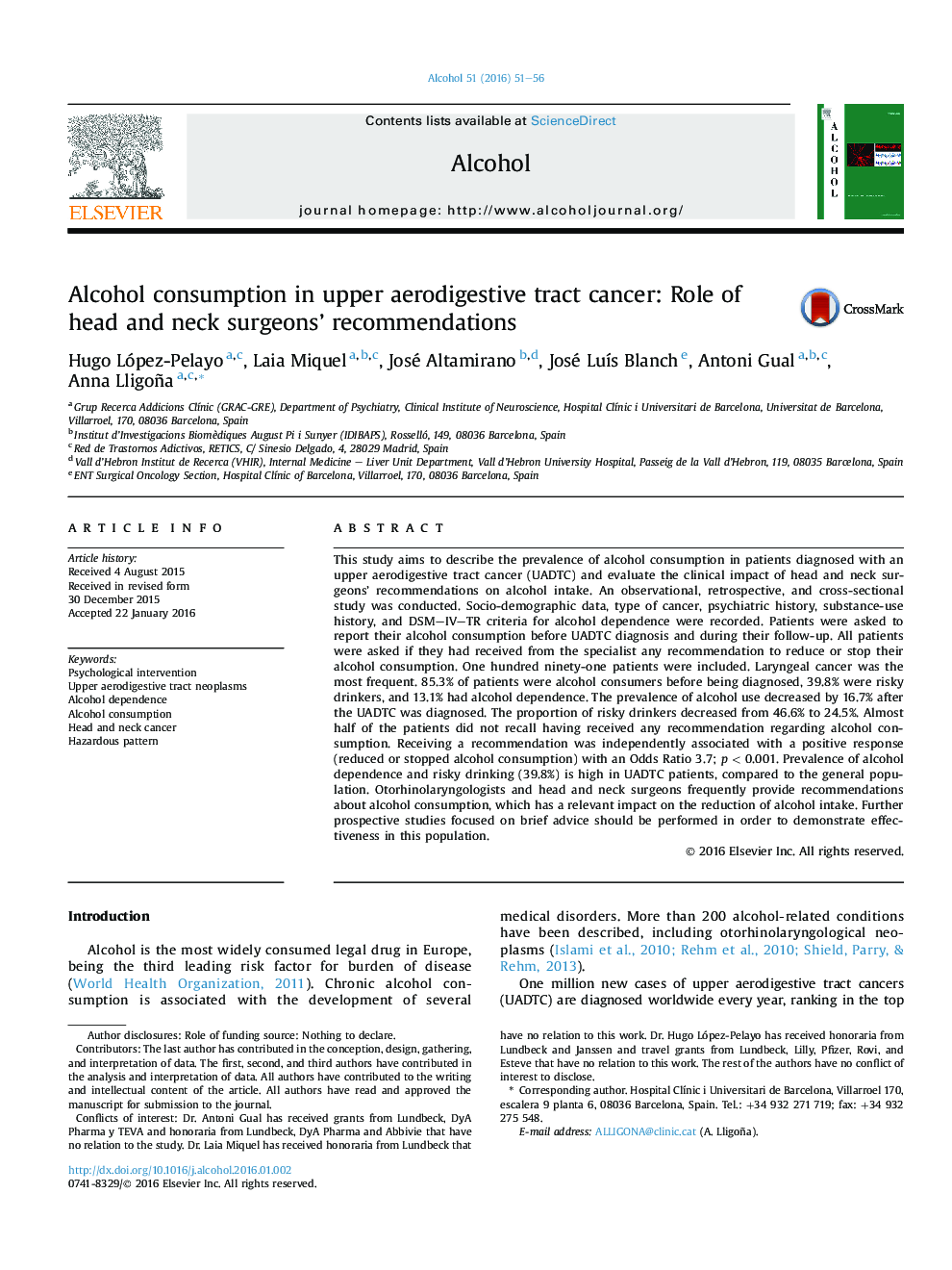| Article ID | Journal | Published Year | Pages | File Type |
|---|---|---|---|---|
| 1066784 | Alcohol | 2016 | 6 Pages |
•Alcohol use is very prevalent in upper aeordigestive tract cancer patients.•Otorhinolaryngologists frequently provide recommendation for stopping alcohol use.•Otorhinolaryngologists's advice impacts on alcohol use.
This study aims to describe the prevalence of alcohol consumption in patients diagnosed with an upper aerodigestive tract cancer (UADTC) and evaluate the clinical impact of head and neck surgeons' recommendations on alcohol intake. An observational, retrospective, and cross-sectional study was conducted. Socio-demographic data, type of cancer, psychiatric history, substance-use history, and DSM–IV–TR criteria for alcohol dependence were recorded. Patients were asked to report their alcohol consumption before UADTC diagnosis and during their follow-up. All patients were asked if they had received from the specialist any recommendation to reduce or stop their alcohol consumption. One hundred ninety-one patients were included. Laryngeal cancer was the most frequent. 85.3% of patients were alcohol consumers before being diagnosed, 39.8% were risky drinkers, and 13.1% had alcohol dependence. The prevalence of alcohol use decreased by 16.7% after the UADTC was diagnosed. The proportion of risky drinkers decreased from 46.6% to 24.5%. Almost half of the patients did not recall having received any recommendation regarding alcohol consumption. Receiving a recommendation was independently associated with a positive response (reduced or stopped alcohol consumption) with an Odds Ratio 3.7; p < 0.001. Prevalence of alcohol dependence and risky drinking (39.8%) is high in UADTC patients, compared to the general population. Otorhinolaryngologists and head and neck surgeons frequently provide recommendations about alcohol consumption, which has a relevant impact on the reduction of alcohol intake. Further prospective studies focused on brief advice should be performed in order to demonstrate effectiveness in this population.
